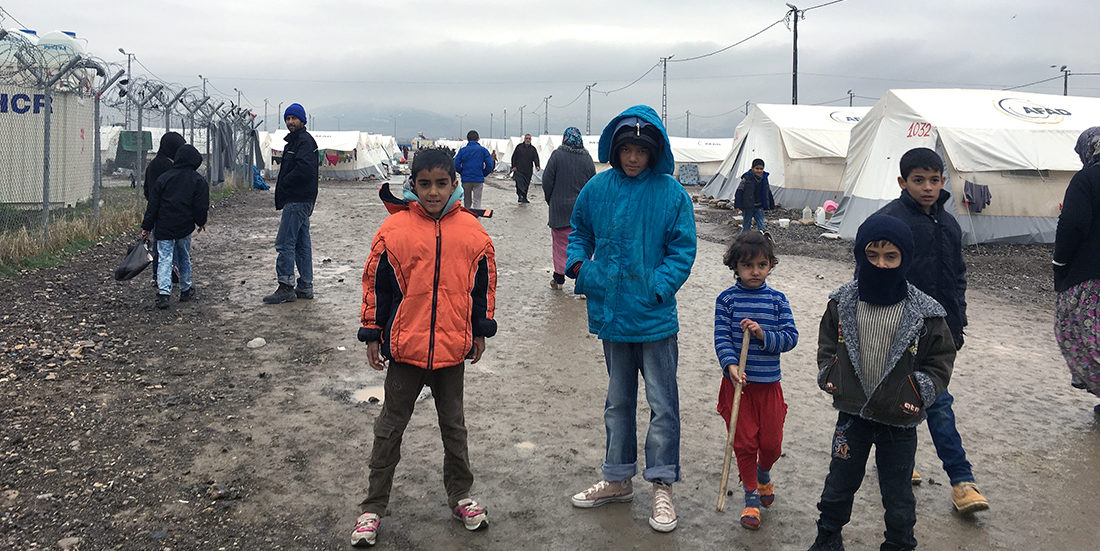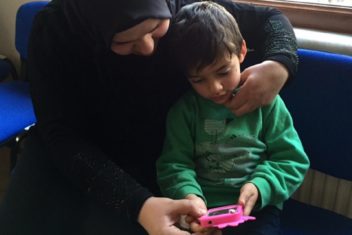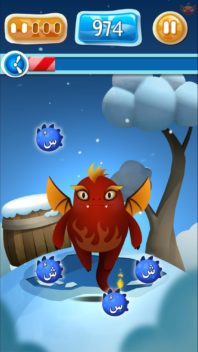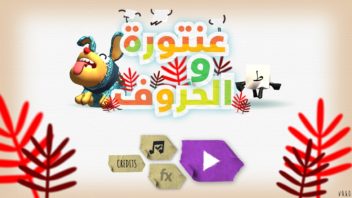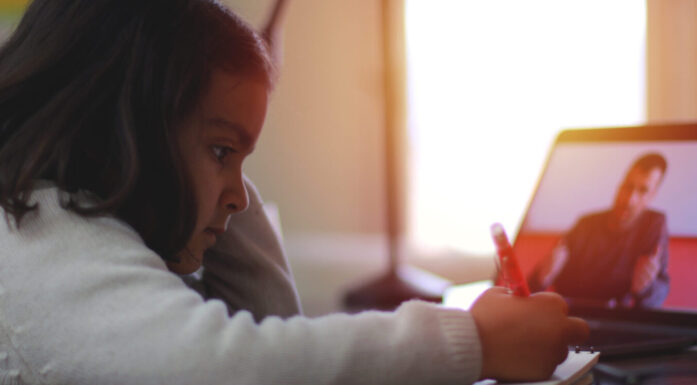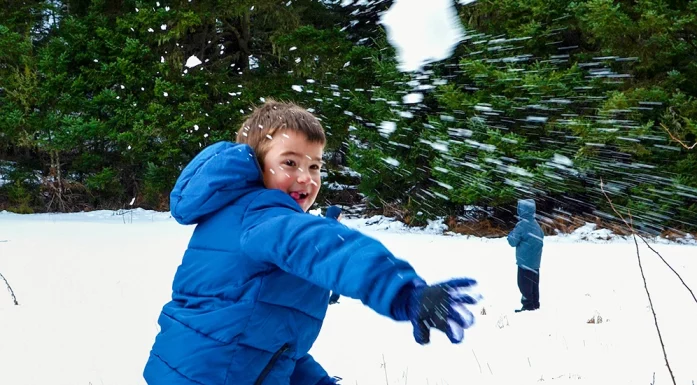Helping refugee children to read — with a computer game
Syrian refugee children often do not learn to read in their native Arabic. But two new games are set to change that.
READING APP: Some 2.5 million Syrian children receive no education in Arabic because of the conflict in their homeland. They reside mainly in neighbouring countries, such as Turkey and Jordan, where they often receive little or no schooling at all.
But even children who have been granted asylum in other countries cannot count on instruction in their mother tongue. Now help is coming – in the form of two new literacy games for smartphones.
“Smartphones are widespread among Syrian refugees,” says Alf Inge Wang, a professor in NTNU’s Department of Computer Science.
The reason refugees prioritize phones just behind food, drink and clothing is simple: they are the only effective way for refugees to keep in touch with relatives and friends living in their home country or in different countries in Europe and Asia. More than nine out of ten refugee families have access to smartphones and the Internet.
- You might also like: Computer games for classroom teaching
The monster needs food
The Norwegian Agency for Development Cooperation (Norad) and the Norwegian Ministry of Foreign Affairs coordinated the release of the games. They invited entries for the EduApp4Syria competition in 2015, with the goal of developing an app to help Syrian refugee children learn to read Arabic.
Professor Wang has extensive experience in developing games used in teaching. He was part of the jury that selected the two winning game prototypes, Feed the Monster and Antura.
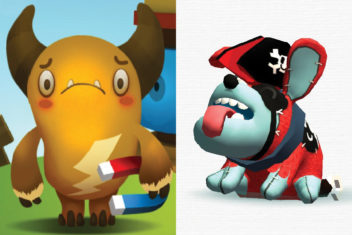
Feed the Monster and Antura have been crafted so that they are both fun and educational. But most of all, fun. Photo: NTNU
Feed the Monster is probably the intuitively simpler game and is even fun for those who do not have any prior knowledge of Arabic. It is aimed at beginners and younger children.
“Candy Crush was the prototype for designing this app,” says Wang.
In Feed the Monster, players follow a hungry and ever-so-charming monster that needs to be fed with letters and words. The game begins simply, but gradually gets trickier. As the monster consumes more food, it grows stronger and bigger and also requires more complicated food. Currently the game has 72 levels.
- You might also like: Exergames for the elderly
The wild dog
Antura is a wild dog and a recognizable character from several Syrian folktales.
This literacy app is a bit more advanced. It includes different mini-games where players have to solve letter and word tasks, like picking out the right letters running around in the woods or popping balloons with letters that do not belong in a word.
Now and then Antura intrudes, barking and bothering things. He is an annoying little nipper, but a little bit sweet, too. In this game, the character evolves and rewards players the more they play. Antura acquires new objects and appearances as players complete the different mini-games.
Both games can be played offline, since access to data is often limited and too expensive for most refugees to afford it.
Fun is the goal
Jury members filtered out the more boring games. The goal is for kids – and maybe adults too – to have fun playing the games, while also learning something. And the jury was looking for the games to be entertaining so kids would want to keep returning to them.
“Refugees who come to Europe are often well off financially. But in neighbouring countries, many people live in poverty and lack adequate schooling,” says Wang.
Some adult refugees are illiterate and can also benefit from playing with the kids. The jury received the most helpful feedback from the Syrian children and adults who tested the games.
One test was carried out among refugee children in Trondheim and another in a refugee camp in Amman, Jordan.
Travelled to Turkey and Jordan
Wang, along with several jury members and representatives from Norad and the Norwegian Ministry of Foreign Affairs visited refugee camps in the village of Gaziantep near the border Turkish and Syrian border and also in Amman, Jordan in connection with the project. The purpose was to research what the needs and infrastructure were.
Liv Marte Kristiansen Nordhaug, Norad’s Project Manager, is heading the EduApp4Syria project, and the jury members consist of both linguists and cultural experts.
According to Nordhaug, Android is the dominant platform in the refugee camps they visited, but the games will also be available for iOS to meet the needs of refugees in Europe, who tend to be better off financially.
The initial bidding round included 78 prototypes from 31 countries. These were first whittled down to five, then three and finally to two finalists.
International release
The games are free, of course. They need to be ready for open beta testing by late March. The first release will take place at the beginning of the month in Jordan, where Queen Rania’s Foundation for Education and Development is involved with the project.
The official European launch took place during UNESCO’s Mobile Learning Week in Paris from 20 to 24 March. Several NGOs that can help spread and publicize the games among refugees living in camps were among the participants.
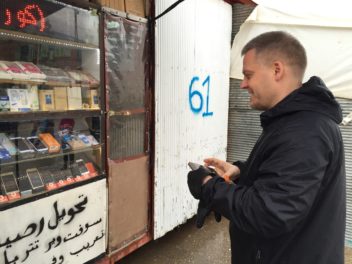
Professor Alf Inge Wang at a mobile phone store in a refugee camp in Turkey. Photo: Liv Marte Nordhaug, Norad
Norad and the Norwegian Ministry of Foreign Affairs are also working with Türkcell, a telecommunications company that provides communication services to the most subscribers in Turkey. Facebook and various television channels will also make these games available.
A key goal of the EduApp4Syria project is to teach children to read in an entertaining way, regardless of their language or nationality. When the games Feed The Monster and Antura are released, they will not be limited to Syrian children, but can also be used to develop basic literacy skills by all children who have Arabic as their mother tongue.
In addition, the winning EduApp4Syria apps have open source licences and have been designed so that new versions for other languages will be easy to create. The hope is that future games from EduApp4Syria will help children learn to read worldwide.
